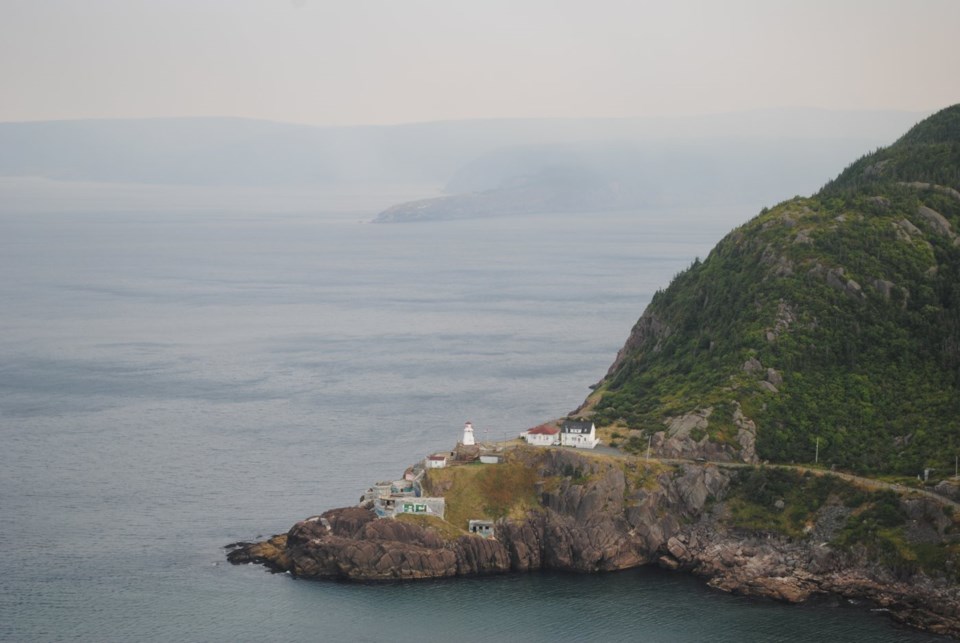ST. JOHN'S — Water bombers have managed to slow the growth of the wildfire threatening Newfoundland and Labrador's largest city, but the flames are still burning out of control, officials said Wednesday.
Meanwhile, the provincial government is introducing a ban on all-terrain vehicles on forested roads as crews grapple with five out-of-control wildfires across the province — the largest of which now encompasses more than 64 square kilometres, Premier John Hogan told a briefing in St. John's.
Officials have also handed out two fines — one to an individual and one to a corporation — for activity violating a provincewide fire ban, Hogan said.
"I really hope people understand the seriousness of the fire ban and the fire regulations and what we're asking people to do," Hogan said. "If you do violate this, we will find you and we will fine you."
On Tuesday, officials ordered the evacuation of parts of a suburb of St. John's that is threatened by a fire roughly 15 km south of the provincial capital. Thousands of others within the metropolitan area remain under an evacuation alert, which requires residents to be prepared to flee at a moment's notice.
Hogan said Wednesday that the fire was burning about 250 metres from the Trans-Canada Highway. Six water bombers — four from Newfoundland and Labrador and two from Ontario — were working to contain the flames.
The fire had grown to about 2.5 square kilometres, according to the provincial wildfire dashboard. Extreme conditions forced officials to pull ground crews off the southern edge of blaze on Tuesday, Hogan said.
About 100 km to the west, the largest fire in the province continued to burn near Kingston, N.L., on the northwestern shore of Conception Bay. The fire, which started Aug. 3, has forced about 3,000 people from their homes and destroyed an unknown number of homes and structures. Hogan has said the smoke in the area is too thick for crews to make an accurate tally of the destruction.
Christine McNeil, owner of The Mess Tent Poutinerie, has been making about 150 meals a day to make sure the 300 firefighters in the area get breakfast, lunch, dinner and a midnight meal.
The 61-year-old was a first responder with the Canadian Armed Forces, and she spent many years posted to the supply ship HMCS Preserver, which was retired in 2016. Everyone on board was trained in firefighting, she said.
"This is absolutely killing me, that I can't be up there, that I'm not in the mix," McNeil said in a telephone interview from her restaurant in Lower Island Cove, N.L.
"Providing meals is best I can do for them. And I'll do that until they kick me out or evacuated us or they tell me they don't want any more. I'll do it every day and every night until this is finished."
Hogan said he spoke with Prime Minister Mark Carney on Tuesday night and made sure he understood the severity of the wildfire situation.
"I did take the time to just further describe the geography of what we're facing here, the fact that fires are not only in central (Newfoundland) and Conception Bay North, but now have moved toward the urban centre," Hogan said.
A Sikorsky S-92 helicopter capable of carrying more than 5,300 litres of water is en route from Alberta, contracted at a price of $2.1 million, the premier added.
This report by The Canadian Press was first published Aug. 13, 2025.
Sarah Smellie, The Canadian Press




